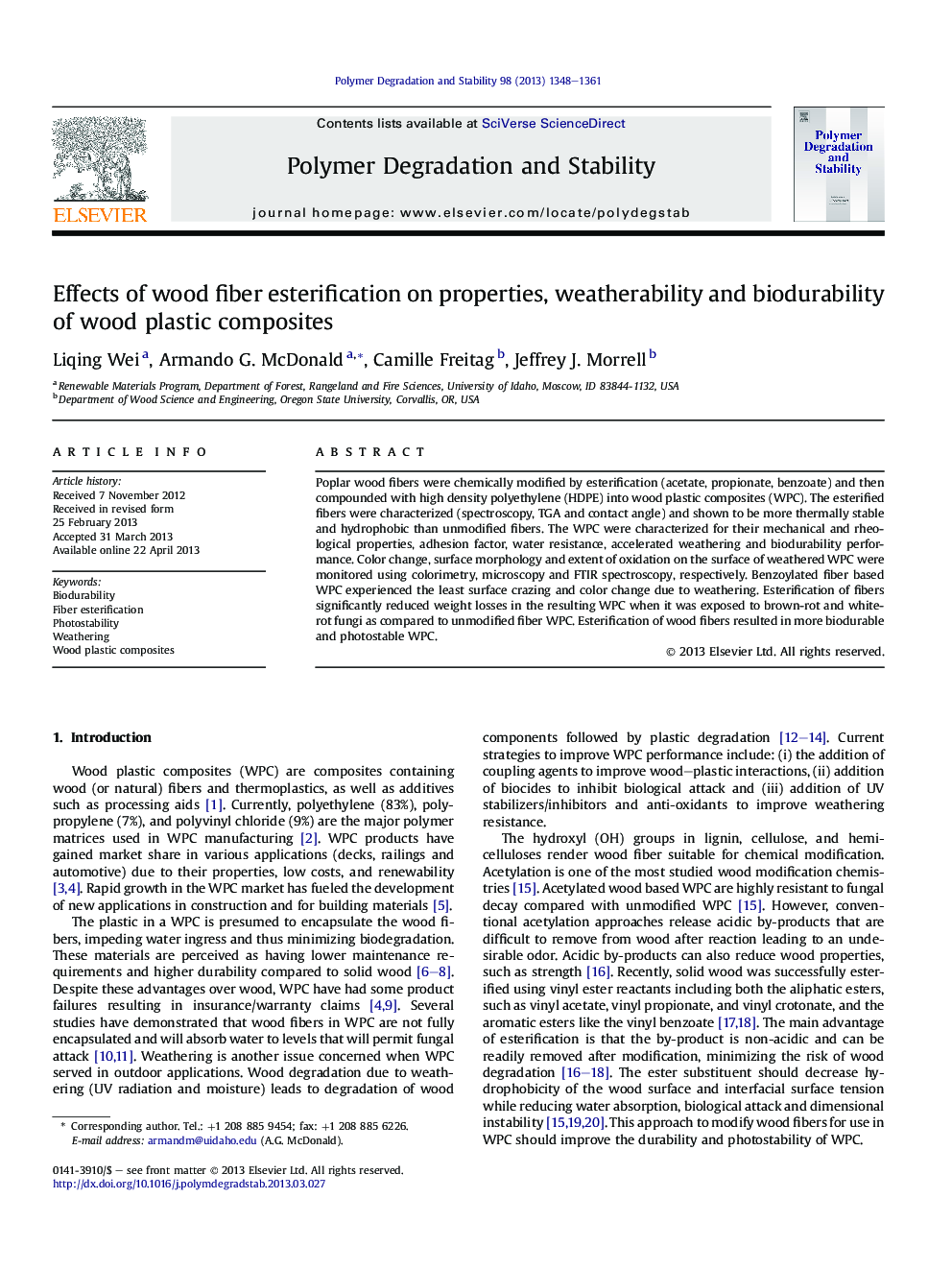| Article ID | Journal | Published Year | Pages | File Type |
|---|---|---|---|---|
| 5202208 | Polymer Degradation and Stability | 2013 | 14 Pages |
Abstract
Poplar wood fibers were chemically modified by esterification (acetate, propionate, benzoate) and then compounded with high density polyethylene (HDPE) into wood plastic composites (WPC). The esterified fibers were characterized (spectroscopy, TGA and contact angle) and shown to be more thermally stable and hydrophobic than unmodified fibers. The WPC were characterized for their mechanical and rheological properties, adhesion factor, water resistance, accelerated weathering and biodurability performance. Color change, surface morphology and extent of oxidation on the surface of weathered WPC were monitored using colorimetry, microscopy and FTIR spectroscopy, respectively. Benzoylated fiber based WPC experienced the least surface crazing and color change due to weathering. Esterification of fibers significantly reduced weight losses in the resulting WPC when it was exposed to brown-rot and white-rot fungi as compared to unmodified fiber WPC. Esterification of wood fibers resulted in more biodurable and photostable WPC.
Related Topics
Physical Sciences and Engineering
Chemistry
Organic Chemistry
Authors
Liqing Wei, Armando G. McDonald, Camille Freitag, Jeffrey J. Morrell,
